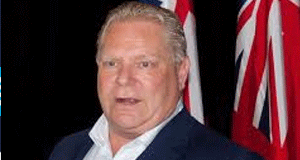Have you heard? Ontario has a new tax-fighting hero! After more than a decade of raising taxes, proposing and implementing new taxes, and increasing electricity costs, Kathleen Wynne is suddenly a champion for low taxes and affordability.
On August 14, the Association of Ontario Municipalities launched a public relations campaign calling on the provincial government to increase the HST from 13 per cent to 14 per cent. The extra money raised by the higher HST would be then given to municipalities.
Fortunately for hard pressed Ontarians, the Premier shut down the idea, posting “[n]ot for a minute, not for a second would I consider it. We’re trying to help people get ahead when they are struggling to make ends meet. It’s just not fair to even consider this.”
It seems like the Premier finally met a tax hike she doesn’t like. Or at the very least, one she doesn’t like the timing of.
Wynne is currently the least popular Premier in Canada, with a 15 per cent approval rating. Wynne is also the next Premier facing an election. With poll numbers this low, a hike in the HST would hurt her chances of re-election even further.
But for the Premier to declare she would “not for a second” consider this tax hike flies in the face of her own record, and her own instructions to municipalities.
Less than a year ago, at the exact same conference where the HST hike was proposed this year, the Premier told municipal leaders to bring her ideas for new “revenue tools.” In non-politician speak, that means new taxes. And that’s exactly what the municipalities have done.
Make no mistake – Premier Wynne did the right thing by saying no.
The Fraser Institute found that Ontario municipalities have seen their revenues grow quite robustly between 2000 and 2014, at an average rate of 5.1 per cent, doubling from $22.7 billion to $45 billion. Meanwhile, Ontario’s population grew at an average annual rate of 1.1 per cent over that period, and nominal GDP grew at about 3.4 per cent. This means municipal revenue has been growing faster than both GDP and population. It’s right to take municipal politicians’ cries for new taxes with a whole bag of salt.
But actions speak far louder than words. In denying the tax hike, Kathleen Wynne said “people are trying hard to get ahead. We’ve got to help them and raising the provincial portion of the HST would actually fly in the face of that.”
It’s true. People are struggling to get ahead. But in large part, this is because of the Wynne government’s own policies. Off-peak electricity costs, which is evenings and weekends usage, when residential consumers use the most power, has increased nearly 150 per cent in the last 10 years. The government’s plan to slash 17 per cent from bills is a short term ploy designed to calm angry voters before 2018, and will add $1.4 billion per year in interest costs.
The Premier also implemented a carbon tax this year, even though she said in 2015 that a carbon tax wasn’t a part of her plan for Ontario. The Auditor General found that the new tax will cost consumers and businesses $8 billion between 2017 and 2020. Much of that money will be sent to Quebec and California.
And don’t forget all the other tax increases her government has brought in while they’ve been in power, with regular increases to taxes on wine, beer, tobacco and aviation fuel. Or the new tax bracket for those earning over $150,000, essentially lowering the threshold of what it means to be a high-income earner in Ontario.
Past behaviour is the best predictor of future behaviour, and Wynne’s track record on taxation isn’t a good one. Struggling Ontarians shouldn’t forget this when the Premier claims to be a champion for taxpayers.
— Christine Van Geyn
Canadian Taxpayers Federation
 TheBulletin.ca Journal of Downtown Toronto
TheBulletin.ca Journal of Downtown Toronto

